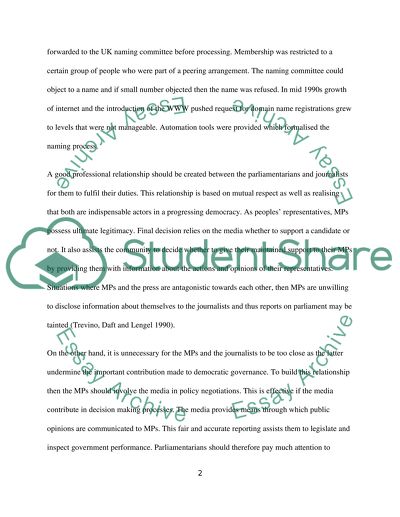Cite this document
(“Examine the impact of the new media on Parliaments and MPs Essay”, n.d.)
Retrieved from https://studentshare.org/miscellaneous/1565967-examine-the-impact-of-the-new-media-on-parliaments-and-mps
Retrieved from https://studentshare.org/miscellaneous/1565967-examine-the-impact-of-the-new-media-on-parliaments-and-mps
(Examine the Impact of the New Media on Parliaments and MPs Essay)
https://studentshare.org/miscellaneous/1565967-examine-the-impact-of-the-new-media-on-parliaments-and-mps.
https://studentshare.org/miscellaneous/1565967-examine-the-impact-of-the-new-media-on-parliaments-and-mps.
“Examine the Impact of the New Media on Parliaments and MPs Essay”, n.d. https://studentshare.org/miscellaneous/1565967-examine-the-impact-of-the-new-media-on-parliaments-and-mps.


